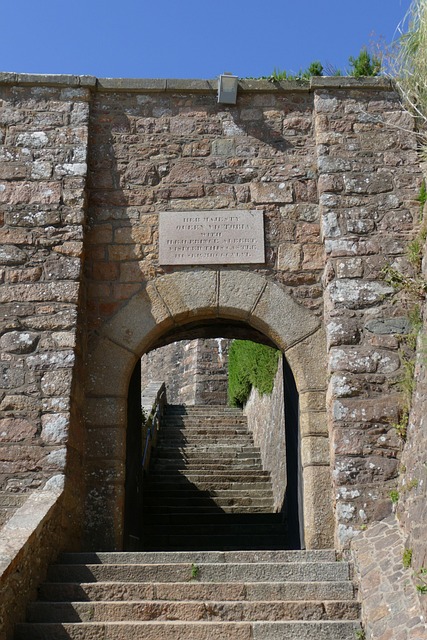Clergy abuse is a serious issue where religious leaders exploit trust to harm vulnerable congregation members in New Jersey. Recognizing patterns and seeking justice through specialized clergy abuse law firms is crucial. The state has evolved its legal response with strong laws like the Sexual Assault Law and Clergy Abuse Prevention Act. These firms empower survivors, provide tailored legal expertise, and ensure accountability from abusers. Reporting incidents, joining support groups, and consulting these firms are vital steps for victims. Preventive measures, including mandatory training and collaboration with reputable clergy abuse law firms, aim to protect individuals and foster healing.
In New Jersey, addressing clergy sexual misconduct requires a multifaceted approach. This article delves into the complex issue of clergy abuse, recognizing its patterns and profound impact on victims. We explore the state’s legal framework, highlighting the significance of specialized clergy abuse law firms in providing justice and support to affected individuals. Additionally, we offer practical steps for victims seeking redress and discuss preventive measures and potential reforms to better safeguard congregants. Understanding these dynamics is crucial in navigating the legal landscape and fostering healing within religious communities.
Understanding Clergy Abuse: Recognizing the Patterns and Impact

Clergy abuse, a sensitive and complex issue, involves instances where religious leaders exploit their positions of power and trust to inflict emotional or physical harm on vulnerable individuals within their congregations. Recognizing patterns is crucial in identifying and addressing such abuse. Many survivors share similar experiences, often involving manipulative tactics like gaslighting, emotional coercion, or explicit threats. The impact of clergy abuse can be profound and long-lasting for victims, leading to severe psychological distress, anxiety, depression, and even post-traumatic stress disorder (PTSD).
In New Jersey, a state with a diverse religious landscape, survivors of clergy abuse are increasingly seeking justice and support through specialized legal advocacy. A clergy abuse law firm in New Jersey plays a vital role in empowering victims by providing legal expertise tailored to their unique circumstances. These firms offer confidential consultations, help navigate complex legal processes, and ensure that the rights of survivors are protected while pursuing accountability from those who have abused their positions of authority.
Legal Framework in New Jersey for Addressing Clergy Sexual Misconduct

In New Jersey, the legal framework for addressing clergy sexual misconduct has evolved over time, reflecting a growing awareness and understanding of the severity and impact of such crimes. A clergy abuse law firm in New Jersey helps victims navigate this complex landscape, ensuring they receive justice and compensation. State laws, including the New Jersey Sexual Assault Law and the Clergy Abuse Prevention Act, provide specific protections for victims and impose stringent penalties on perpetrators. These laws establish clear guidelines for reporting, investigation, and prosecution, empowering victims to take legal action against abusive clergy members.
Moreover, New Jersey has implemented robust mechanisms for disclosure and accountability within religious institutions. Clergymen are required to report instances of sexual misconduct, and church leaders face legal consequences for failure to act or for covering up such incidents. The state’s laws also offer support services and resources to victims, facilitating their recovery process. A clergy abuse law firm in New Jersey plays a pivotal role in these proceedings, offering legal expertise tailored to the unique challenges faced by survivors of clerical sexual abuse.
The Role of a Specialized Clergy Abuse Law Firm in New Jersey

In the complex landscape of clergy abuse cases, a specialized clergy abuse law firm in New Jersey plays a pivotal role in advocating for survivors and holding perpetrators accountable. These firms are equipped to handle the unique challenges that arise in such sensitive matters, ensuring that victims receive justice and support. With experience navigating the legal system and understanding the specific dynamics of religious institutions, these experts provide crucial guidance and representation.
A dedicated New Jersey clergy abuse law firm offers a range of services, including investigating allegations, gathering evidence, and developing strong legal strategies. They foster an environment where survivors can share their stories without fear of judgment, empowering them to take legal action. By employing knowledgeable attorneys who specialize in this area, firms can provide comprehensive support, from initial consultations to trial representation, ensuring that victims’ rights are protected throughout the entire process.
Steps Victims Can Take to Seek Justice and Support

If you have experienced abuse by a member of the clergy in New Jersey, seeking justice and support is a crucial step towards healing. The first course of action is to report the incident(s) to local law enforcement or relevant religious authorities, ensuring all details are accurately documented. It’s important to consult with a specialized clergy abuse law firm in New Jersey that understands the complexities of these cases and can guide you through the legal process.
Victims should also consider joining support groups or seeking counseling to cope with the emotional trauma. Many organizations in New Jersey offer confidential resources and legal aid specifically for victims of clergy abuse. Remember, taking action is a brave step towards holding perpetrators accountable and securing justice for the harm inflicted upon you.
Preventive Measures and Future Reforms for Safeguarding Congregants

Preventive measures are crucial in addressing clergy abuse within New Jersey’s religious communities. Many organizations and legal advocates are pushing for stricter guidelines and policies to protect congregants, especially children and vulnerable adults. This includes mandatory training programs for church staff and leaders on recognizing and reporting suspected abuse, as well as implementing secure record-keeping practices to track potential offenders.
Future reforms should also focus on enhancing communication between religious institutions and law enforcement, fostering a culture of transparency and accountability. By collaborating with reputable clergy abuse law firms in New Jersey, churches can ensure they have robust systems in place to safeguard their members. These measures aim to create a safer environment while promoting healing for survivors and deterring potential abusers.






